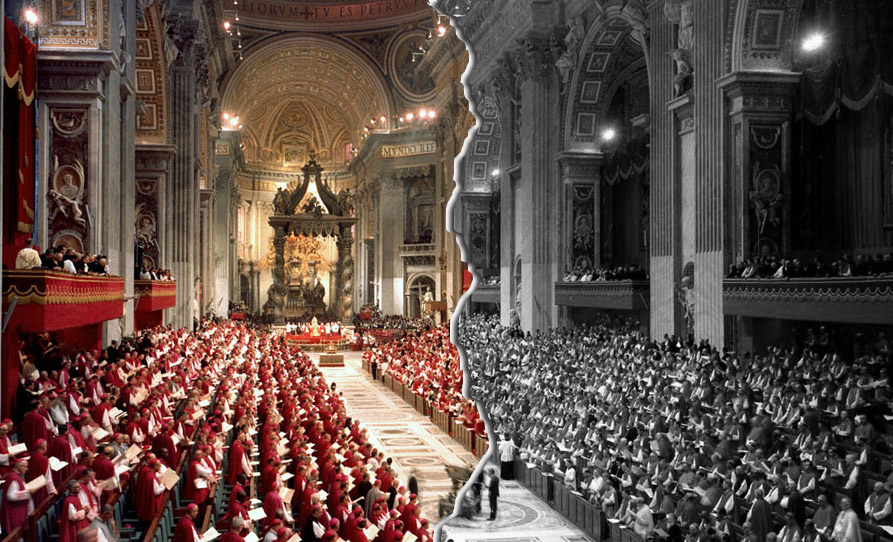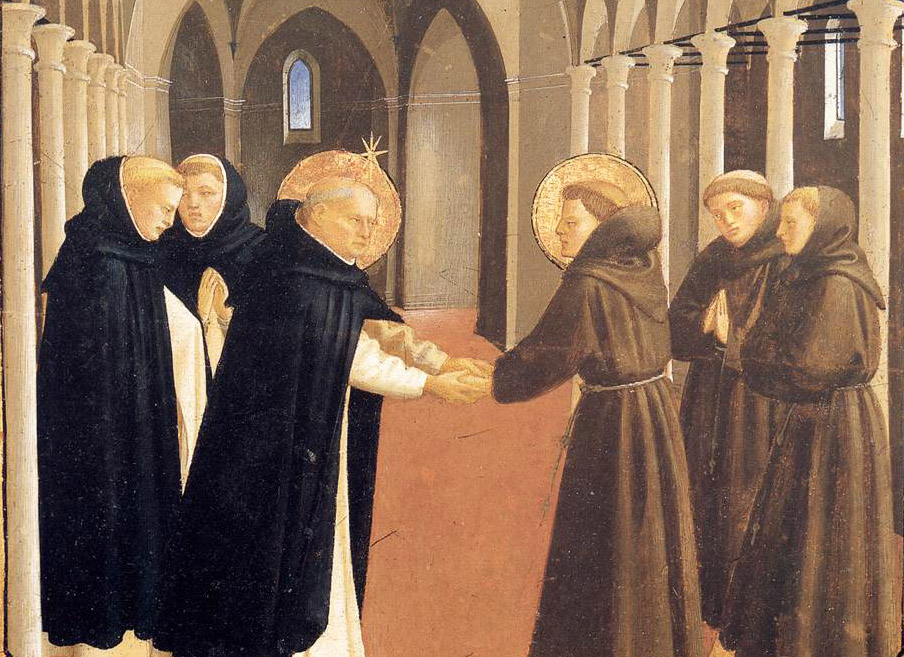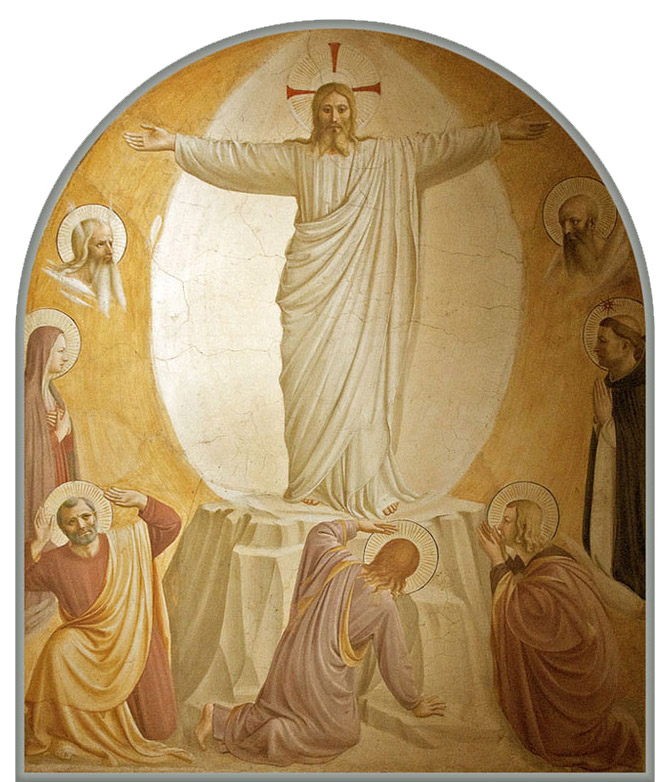Blog - Blogue

-
This is the one thing you need to do this vacation . . .
lundi 18 août 2014There is a season for everything, a time for every occupation under heaven.
And in this part of the world, summer is a time for vacation.
Most of the year we are committed to our busy lives. We’re going flat out, we’re in “high gear”.
At the height of the siesta season on our “Discover Wisdom” blog, it’s appropriate to take a look at how to be wise about our time off.
What makes for a great vacation?
Rest and relaxation are part of it.
Sipping mojitos by the lake in a hammock is lovely.
Excitement and fun can also add to it.
Whitewater rafting . . . mountain biking . . . or perhaps shopping or checking out a library . . . Depending on your partiality.
But what’s at the heart of a really good, soul-livening rest?
What makes the difference between “a good/fun time” and one that refreshes? Enlivens? Enriches?
A real vacation teaches us to “be”, not only “do”. That’s at the heart of it.
Vacation is not something you consume; it consumes you.
It’s a state (not like “Florida”, like “hungry”).
Busyness is in vogue in a big way. And our overriding emphasis on “doing” has caused “being” to be greatly overlooked.
Josef Piper argues that:
Leisure is only possible when we are at one with ourselves. We tend to overwork as a means of self-escape, as a way of trying to justify our existence.
Vacation is a great time to balance the scales.
During this year’s vacation, take time to do nothing.
Really, do nothing.
See, this is me doing “nothing” in a hammock with my twins:

But actually, I was taking a selfie.
Or to be precise, 10-12 selfies to get the picture just right. Then cropping it. And editing it. And then posting to Facebook. Then browsing Facebook for a while...before reading the newspaper and after having browsed various blogs.
Not quite “nothing”.
Not what can be counted as true “leisure”.
In the non-act which is leisure one simply soaks in one’s surroundings. “You” begin to take the back seat to what’s around you. You begin to “take things in”.
It’s an inexpensive, but pleasurable, vacation.
“Wonder” is what creeps up on you when you get the hang of it.
In Piper’s world, we do not rest in order to be able to work, we work in order to rest. We are built for vacation. For leisure.
We work when we have to, but leisure is the good stuff. It’s where “we” happens, where insights occur and a layer of depth gets added to human living.
Wonder acts upon a man like a shock, he is "moved" and "shaken", and in the dislocation that succeeds all that he had taken for granted as being natural or self-evident loses its compact solidity and obviousness; he is literally dislocated and no longer knows where he is.
Having a bunch of toddlers around, I get to see wonder at work in high gear all day (and night) long. They’re not fettered by distractions, by preoccupation with constructing a presentable “self” to the world. They’re in the world, bopping along, taking it all in, in one extended act of leisure. Continuously on vacation.
I was camping with my 3 year-old a few weeks ago when he got up to go pee during the night. Being 3 and usually asleep or in the light-flooded city sky during stargazing hours, it was his first encounter with a truly starry night. I did not need to tell him to look, to take it in, to be still and appreciate it.

The “Wow, look daddy, stars. Pretty!” was like watching whomever it was that first saw the new world see shore for the first time.
Wisdom is what is at the heart of vacation. We see, then we understand. As we sit back and let go of the steering wheel in our lives and begin to be attentive to what’s going on around us in a new way, certain sparks that get pushed under the surface for the bulk of the year come to life.
Honest gratitude, clear thinking, hopeful aspirations . . . this is the good stuff. This is what wonder brings and what wisdom is made of.
We spend most of the year pretending we know things. We operate in the utilitarian sphere. In order to be good “doers”, we need to stick to the world of “bricks and mortar”. We must be pragmatic.
Vacation time is upon us for a few more weeks. We can expand our horizons by taking time to do nothing, to contemplate, to let the mysteries of life surprise us. It is a time to practice the “knowing which is inspired by love”: contemplation.
Summer has come. The terrible, bitter cold that eats away at our midriffs and sneaks in through our wrists and up our arms all winter long has given us a too brief respite.
If you can’t afford weeks of rest in the Muskoka’s or a trip out East to stuff your face with lobster, don’t feel left out.
You can still get in on the fun.
Get outside.
Stop.
Look.
Listen.
Enjoy.
Be.
Joseph Yawney is Director of Public Relations at Dominican University College and has a Master's in Philosophy from DUC in the area of virtue ethics. He lectures across the province of Ontario to high school students introducing them to philosophy through socratic dialogue.
-
Restoring Christian culture...a good idea?
vendredi 01 août 2014
“Restoration” seems to be all the rage. “Conservative” Christian circles sigh and pray for restoration of ethics, of liturgy, of education, of common sense. In some “progressive” circles, we also hears sighs: "Lay people ought to engage like they used to, care like they did in the sixties after Vatican II" . . . bloggers on both sides are crying to bring back "the good ol' days".
But what does this idea of "restore", from the Latin restaurare, mean? Let's take a look at its etymology and different uses throughout the centuries so as to inspire our meditation.
Is Christian culture a reality that can be fixed? It would follow that it can be broken. Does not the idea of restoration imply that it would be a mechanism or a thing that could be understood – as one understands an engine – pulled apart and put back together?
I doubt it.
Is Christian culture something that could simply be repeated? At best, some elements may be reiterated, that is integrated in a new constellation.
Could a Christian culture be brought back to health? This would imply that cultures may be “sick” and corrupted. It suggests that remedies are at hand, that “doctors” are capable of a proper diagnostic, prognosis and cure.
These sort of questions help us become more prudent in our hopes for restoration…
To get to the crux of the matter we must ask: was there ever a (or many) specifically “Christian” culture(s)?
There have been cultures within which the Churches (catholic, protestant, orthodox), as institutions, had more influence, within which individual Christians made significant contributions and exerted power. But does this make these cultures “Christian”?
We should just pay attention to the numerous reformers, founders of religious congregations and to the reasons they invoked to see that they did not think that the culture was “Christian” – Francis and Dominic are a good example of this at the heart of the 13th century! Not only was the ambiant culture not “Christian” but in many cases they thought that the Church itself was in need of reform, in need of becoming evangelical, living the Word of God! And here, Saint Augustine’s City of God remains an important witness!

These two sets of questions help us pay attention not so much to the problems – logical, historical or sociological – about the expression “restoration of Christian culture” but to something else. Much more important according to me!
In fact, the discourses on “restoration of Christian culture” are nostalgic and programmatic. Nostalgic: they take place because individuals and groups are sad at what they believe is a state of affairs that ought not to be the case. Programmatic: they contain the hope that one can do something about it or at least that it would be a good thing to attempt this “restoration” or, minimally, to pray so that it takes place!
Both the nostalgia and the program stem from options rooted in discourses and practices that became prevalent, in some circles, in the 19th century. This was often linked to a very romantic view of the Middle Ages. In the 20th century, restoration of Christian ethics and culture became a central theme in Pius XIth’s Quadragesimo Adveniens! It was a rhetorical option to bring hope in a time of a major economic crisis (after the crash of 1929), of social unrest linked to capitalist individualism, communist politics and fascist restoration programs. In a way, the appearance of this leitmotiv could be seen as the symptom that part of society and of the Church is suffering and is grappling for hope.
The sadness and the hopes expressed in these discourses need to be heard. The people expressing them consoled! To use an expression in Paul’s Second Letter to the Corinthians, one needs to see what of that is a “sadness from God or according to God” and what is not (2 Co 7, 8-11).
In other words, what in this situation is an occasion for repentance and firm engagement in becoming more faithful to Christ and God’s Church?
And what of it is sadness stemming from a difficulty one feels and experiences in being Christian in the “real” world, which then amounts more to building a protective culture around oneself than about conversion?
What in these discourses is a source to refresh one’s desire to preach the Gospel and to be living witnesses of it?
What in them is a social and political program dreaming of a “Christian” Republic, never far from Plato’s fantasy? Augustine, Aquinas – attentive to Aristotle’s criticism of Plato’s tyrannical and anti-social, dehumanizing programs –, and the Council of Trent, long ago opted for a different evangelization strategy… and Vatican II followed in their footsteps!
In this case, should we not look more towards instaurations than to restorations? In Latin, instauro means to celebrate again, to enter into a process of building less a culture than the “body of Christ”, less a culture but more of vibrant and rejuvenated (also part of the meaning of instauro!) Christian communities.
Let Christians, as individuals supported by brothers and sisters, become “just” and work for the justice of the kingdom… all the while resting less on legal structures and socio-cultural institutions to supply for their inadequacies! Let the Kingdom of God come… not Christian cultures!

